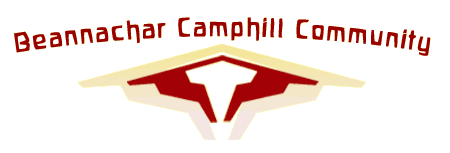
Home Life in Beannachar
"In this new world, all will know that far more happiness can be obtained
by union than by disunion."
Robert Owen
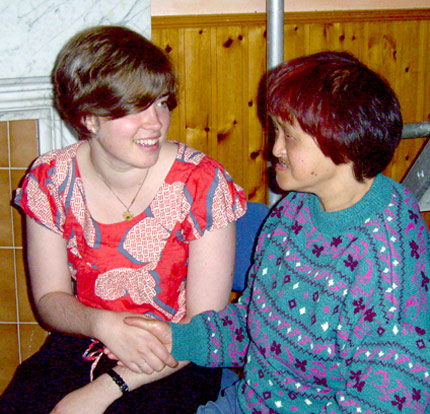 Each house community functions as a family unit, with co-workers, their children
and the students living together and sharing most aspects of daily life. At present all resident students arer accommodated in single rooms, although there is the option of sharing a room if any would wish this.
Each house community functions as a family unit, with co-workers, their children
and the students living together and sharing most aspects of daily life. At present all resident students arer accommodated in single rooms, although there is the option of sharing a room if any would wish this.
The privacy of each student is respected in that co-workers are asked to knock on the door before entering a student's bedroom. The same would apply when entering a bathroom or toilet that a student may be using, and in this case a co-worker would only enter if that student would need supervision or help.
Students are encouraged to phone, e-mail or write letters to their family and friends, and these conversations and correspondence are considered private and are not monitored. In turn we would expect the students to respect the privacy of co-workers and their families in a similar way.
Environment
It is our aim to provide a physical environment full of beauty, making use of natural materials wherever possible. Students are encouraged to create their own personal space in their bedrooms (e.g. with their own pictures, bedcovers etc.) but also to feel at home in the communal sitting rooms, games room and kitchens, free to make full use of the facilities. All household tasks such as cleaning and dishwash are shared out amongst the whole house community, so that at different times of the day each person is responsible for a different job. In this way a feeling of mutual responsibility can be fostered: everyone has his or her part in creating order in the house.
Since it is our aim to create a rich and varied programme of leisure activities, we have no televisions in Beannachar, but most students have their own hifi equipment and many also have a computer and DVD player in their rooms.
All buildings and vehicles are designated "non-smoking" and any co-worker or student wishing to smoke is asked to do so in designated areas outside.
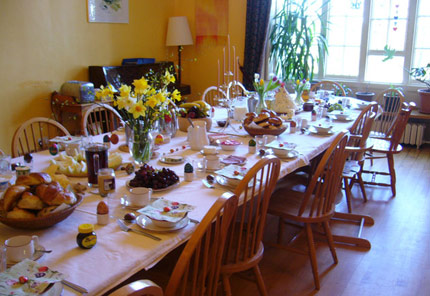 Meals
Meals
All meals are eaten together with the house community, though in special circumstances they may sometimes be taken alone or in smaller groups. Mealtimes are seen as important social occasions and care is taken to create a peaceful but also stimulating and enjoyable atmosphere for all present. A short grace is spoken or sung before and after each meal. We aim to provide meals which are tasty, varied and nutritious, using our own produce as far as possible (e.g. vegetables, fruit, meat and eggs). There is usually a choice of dishes available, including special diets where needed, and the attractive presentation of the food is seen to be an important factor in the ambience of our mealtimes.
Relationships
Each student has a particular co-worker with whom he or she can form an on-going relationship and who will accompany him or her throughout the day, to whatever extent and at whatever level this is needed. The aim is that the co-worker would help the student to become as independent as possible in all areas of personal hygiene; care of clothes, possessions and room; living skills and daily tasks, as far as is appropriate and safe. Although close relationships naturally develop between co-workers and students, an important part of our task is to enable the students to grow towards independence and to become aware of their own responsibility for their actions and in-actions.
 Relationships can develop on a different level between individual students and the more
experienced co-workers who oversee the running of the house communities. A
further dimension to daily life is added with the presence of the co-workers'
children; while the younger ones clearly need help and guidance, the teenagers
can be perceived as peers with whom the students have much in common.
Relationships can develop on a different level between individual students and the more
experienced co-workers who oversee the running of the house communities. A
further dimension to daily life is added with the presence of the co-workers'
children; while the younger ones clearly need help and guidance, the teenagers
can be perceived as peers with whom the students have much in common.
Friendships
Friendships between students are encouraged and supported through the awareness and understanding of the co-workers. As is natural in living together with people of this age group, concerns may arise regarding the awakening of sexuality and we try to accompany these carefully on a basis of individual circumstances, bearing in mind issues of confidentiality. If appropriate, and if wished by the students concerned, parents (or other representatives) and social workers may be included in these considerations.
Families
Contact between students and their families is encouraged e.g. by letters, phone calls and visits. In addition to the minimum four weeks' holiday a year, many students enjoy regular weekends or short breaks at home throughout the year. In order to foster contact between ourselves and parents we hold a bi-annual Parents' Day, taking themes that are of mutual interest, and we also occasionally produce a newsletter, containing articles about events in our life and about more general topics.
Parents are informed about the nation-wide Camphill Association of Parents and Friends and are encouraged to join their local link for the purposes of mutual support, fund-raising, public relations etc. Parents from the vicinity may choose to help with the organisation of our Open Day.
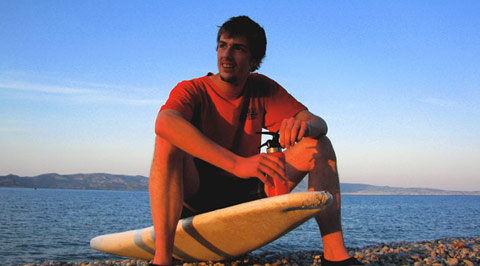 Holidays
Holidays
Students are required to take four weeks' holiday per year: two weeks over Christmas and New Year, and two during the summer by arrangement. In most cases, the student goes home at these times, but for some people this is not possible and a respite situation is found by mutual arrangement between the social worker, the student themselves and Beannachar co-workers. During the early summer a choice of one-week group holidays is offered by Beannachar including such opportunities as outdoor pursuits, horse riding and travel abroad as well as more leisurely activities.
Challenging Behaviour
When difficulties arise, we attempt to approach these positively rather than by the use of sanctions. Occasionally a student may present challenging behaviour, but again we try to see this in the context of their individual path in life. At such times, counselling or talks with co-workers help the student to become more aware of the meaning of their feelings and actions, and out of this awareness a more positive way forward can be sought. Communication with others concerned with the student - parents, social worker, consultant or therapist - may be felt to be important in such a process, and these people may also wish to become actively involved.
Co-workers in Beannachar are given guidance in managing challenging behaviour in a general way and according to the needs of the individual students concerned. They also receive instruction on the use of restraint techniques, as appropriate.
Health Care
 At present the medical needs of all resident members of the community are met by
the General Practice at Camphill (Bieldside). However, should anyone wish to choose a different doctor this would be
arranged.
At present the medical needs of all resident members of the community are met by
the General Practice at Camphill (Bieldside). However, should anyone wish to choose a different doctor this would be
arranged.
As well as concerning themselves with our day-to-day physical well-being as a group practice, one of the doctors is also available on an occasional basis for consultations with students, which can involve confidential conversations, looking at their overall development within and beyond Beannachar. This is felt to provide an integrated approach and contributes to our understanding of the people in our care. Through the Medical Practice different therapies are available, as appropriate: counselling, painting, speech, physiotherapy, therapeutic baths and massage, eurythmy and horse riding. Alongside conventional medicines, homoeopathic or anthroposophical remedies may be prescribed for individual students. Medicines are kept in a locked cupboard in each house, and are administered and recorded by a responsible co-worker. However, when it has been agreed that the student is able to administer his or her own medicines, they are then provided with a locked storage facility in their room for this purpose.
The co-workers responsible for individual students are asked to be aware of and where needed, assist with their personal hygiene. In addition they should note any causes for concern in their health or physical well-being, but in the event of anyone needing on-going care (e.g. during illness or for chronic complaints) there is a nurse available. Regular visits are made to Beannachar by the dental hygienist, the dentist and the chiropodist.
Personal Development Plans, Record-Keeping and Reviews
Individual personal development plans are drawn up shortly after a student's admission, in consultation with the social worker, the students themselves (if possible) and where appropriate, the parents.
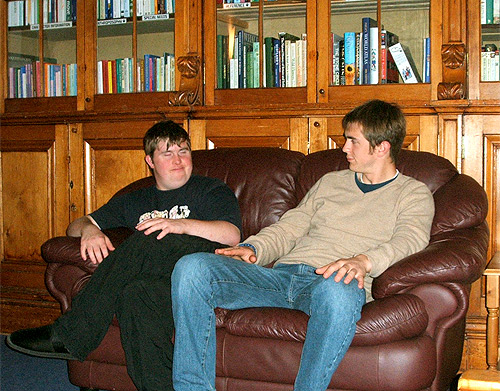 A monthly record sheet is written for each student by their co-worker under the
supervision of more experienced co-workers; wherever possible the students
themselves participate in this process through regular conversations.
The record sheet makes reference to the up-dated personal development
plan; it includes mention of any medical concerns or changes in medication which
fall within that period, and records other areas of the student's everyday
life. In addition, any events which have had particular significance for the student are noted.
A monthly record sheet is written for each student by their co-worker under the
supervision of more experienced co-workers; wherever possible the students
themselves participate in this process through regular conversations.
The record sheet makes reference to the up-dated personal development
plan; it includes mention of any medical concerns or changes in medication which
fall within that period, and records other areas of the student's everyday
life. In addition, any events which have had particular significance for the student are noted.
Work report sheets are also completed every three months by the leader of the work places attended by each student. Wherever appropriate, the students themselves participate in the process of making these records. These records are complemented by minutes recording any relevant conversations during house meetings or in the consultations with the doctor.
All records are kept together by the house co-ordinators, but are available to the co-workers on request and on a confidential, need-to-know basis. The students can gain access to their own records on request to the house co-ordinators.
Regular reviews are held for each student at least twice a year, involving social worker, co-workers from Beannachar, the student themselves and the parents (if appropriate). A review report is prepared before each review, compiled from the previously mentioned record sheets and made available to everyone attending the review. At each review the personal development plan is updated so that everybody concerned with the well-being of that student is aware of the areas they are needing to tackle or develop for their continued individual growth, and also to acknowledge the challenges which may face them in the future.